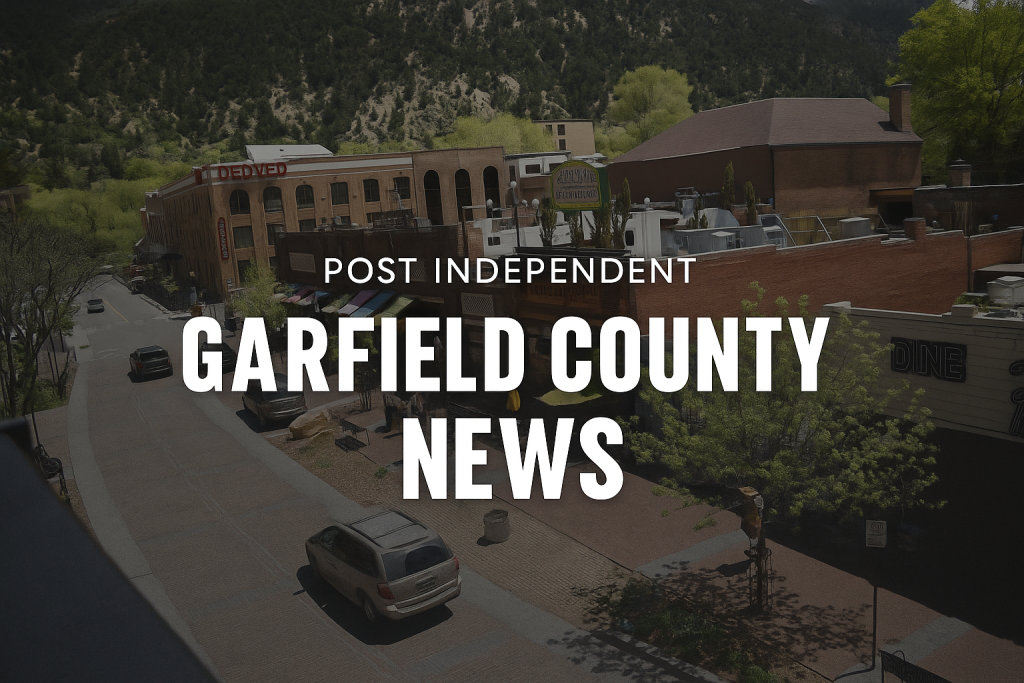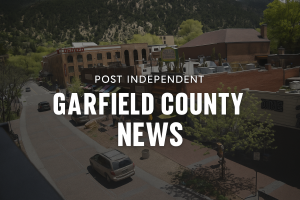City of Glenwood Springs hosts virtual meeting regarding homelessness

The City of Glenwood Springs hosted a virtual town hall meeting on homelessness in the community Thursday night.
The meeting came less than a month after a fire began near the Walmart in Glenwood Springs, likely caused by a propane canister at a homeless camp.
City officials provided information and fielded questions from the community about what law enforcement is and isn’t allowed to do, fire concerns, what law enforcement can legally do and broader community concerns regarding the unhomed.
Participants included City Manager Steve Boyd, City Chief of Public Safety Joseph Deras, Garfield County Sheriff Lou Vallario, Fire Marshall Robin Pitt, Director of Parks and Recreation Ron Trarullo, and District Attorney Ben Sollars.
“The objective of tonight’s meeting is to provide the community an opportunity to ask questions about this topic and issue,” Glenwood Springs Public Information Officer Bryana Starbuck said as she introduced the meeting. “We really wanted to offer community education about what the City of Glenwood Springs and law enforcement can and cannot do.”
The public servants were questioned about topics ranging from solutions to concerns about fire danger, river safety, and the community impact.
The recent fire north of Walmart in Glenwood Springs was a hot topic during Thursday night’s virtual meeting. Vallario said fires such as the June 26 blaze are uncommon.

“I’ve been working in this community for 38 years, and this is the only fire I can recall that was started by someone who’s homeless living on either private property or federal land,” Vallario said.
However, there have been at least two additional fires which started at homeless camps on the property adjacent to Walmart. In 2018, the Glenwood Springs Fire Department was called to the same area north of Walmart to knock out a fire, and in January 2021 there was a fire started at the base of Red Hill in Carbondale. At the same time, there have been many more blazes started by lightning, unattended campfires, dragging chains and other causes.
“The key is preventing some of these folks with the opportunity to get some of these materials that they end up using to build camps and fires,” Pitt continued. “Our main concern is propane tanks, but also things like mattresses and pallets. It unfortunately becomes a social responsibility and it falls on preventing petty theft. The little things can go a long way.”
When the topic of the encampment north of Walmart was brought up again, Vallario said the property in question is privately owned, which also creates some additional challenges for authorities.
“We’ve been working with new property owners, really more than we would normally while understanding the limitations of private property,” he said. “A few years ago, the city and county used a company called ECOS for a big concerted clean up effort, particularly some of the areas behind Walmart and on Red Mountain. The county pulled out four dump trucks full of trash, and the bill ended up north of $60,000. It was successful, but probably within months there were folks back up there.”
“We stepped up our efforts to help because (the Walmart encampment) was identified as an isolated problem,” he continued. “We’ve made several arrests and/or citations for trespassing, but quite frankly the private property owners have some responsibility in securing the property. Putting up posted signs, and if it reaches the point where it’s needed, acquiring private security.”
A reluctance by some to engage in treatment and support services also exacerbates the problem. Vallario pointed out that because of the fact that a portion of the unhoused community doesn’t seem to engage in rehabilitation programs, the Glenwood Springs Police Department often is dealing with the same people multiple times per week.
“Just like it’s frustrating for all of you in the community, it’s frustrating for us as law enforcement too, because we’re contacting the same person, the same people, over and over,” he said. “There’s no tangible results, other than we know we’re going to be contacting them again tomorrow night or the night after or whatever.”
Sollars said that prosecuting trespassing cases have increased 45% since July 1, 2024, which is a result of working in tandem with GSPD to address the problem.
“We are both taking this very seriously. We don’t get those cases unless law enforcement is bringing those to us,” Sollars said.
Boyd pointed out that the City of Glenwood Springs has been in talks with the Glenwood Springs City Council about the possibility of building or providing a homeless shelter to try to counteract having to deal with repeat offenders.
“It is a topic of conversation that we’ve had with the city council. There are a lot of pros and cons to that. We are currently looking into what is and isn’t working in other communities. It is something that is on the table and being discussed currently,” he said.
Sollars pointed out that homelessness doesn’t simply equal not having a roof over their heads. Many unforeseen circumstances often contribute to the problem, and his job includes trying to decipher the person behind the situation.
“It’s not just singularly that they don’t have a house,” he said. “It often involves other barriers that limit their ability to lead a more pro-social lifestyle. Sometimes that includes things like mental illness and drug addictions, and certainly within the court system.”
“My responsibility involves trying to identify whether a person is a risk to the safety of the community, and if they are not, then whether or not they can be rehabilitated or genuinely want to be rehabilitated. There are resources available if someone genuinely wants to rehabilitate and reform themselves.”
All speakers recognized the frustration felt by residents, but also strived to remind the community that people experiencing homelessness often struggle with a variety of challenges, but that doesn’t make them any less human.
“As law enforcement, we address the conduct, not a person’s social standing,” Deras said. “We’ve received complaints about people acting bizarrely, or saying ‘I don’t like the way he smells or is acting,’ but, again, we deal with the conduct, not against their social status. It may be unsettling, and people get frustrated with that, but it is very important for the community to understand that there is a legal standard, not a personal standard that we respond to.”
“It’s a much bigger problem than something that is just happening in Glenwood Springs,” Vallario continued. “This is happening county, state, and nationwide and part of our job is having to balance what is a criminal issue, and what is a broader societal issue.”
“Everyone is entitled to dignity and due process,” Sollars said in conclusion. “Whether that is somebody who is living in a car, or who has a $10 million mansion, the due process that I provide or that they are afforded is the same, regardless of those circumstances.”
Before the meeting concluded, Starbuck mentioned the statewide resource center 211Colorado.org, and the local organization West Mountain Health Alliance that are dedicated to ending homelessness throughout the valley, county, state, and nation.
The virtual meeting was livestreamed on the City of Glenwood Springs YouTube channel, and is still available for replay. For more information about the discussion and more Q&A is available at gwsco.info/homelessness.

Support Local Journalism

Support Local Journalism
Readers around Glenwood Springs and Garfield County make the Post Independent’s work possible. Your financial contribution supports our efforts to deliver quality, locally relevant journalism.
Now more than ever, your support is critical to help us keep our community informed about the evolving coronavirus pandemic and the impact it is having locally. Every contribution, however large or small, will make a difference.
Each donation will be used exclusively for the development and creation of increased news coverage.










